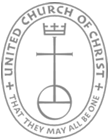Oops! That page can’t be found.
It looks like nothing was found at this location. Maybe try a search?
It looks like nothing was found at this location. Maybe try a search?

Explore
Open and Affirming Coalition
United Church of Christ
1300 E 9th St. Suite 1100
Cleveland, OH 44114
(216) 736-3228
office@openandaffirming.org
© 2024 Open and Affirming Coalition
Looking for a safe and supportive space to connect with fellow Open and Affirming (ONA) church pastors? This virtual support space is for you, regardless of your own sexual orientation, gender identity, or gender expression. This is a great opportunity to connect with other pastors who share your commitment to inclusivity, gain insights, and receive/offer support in a nurturing space. Click Here for more info and to register!